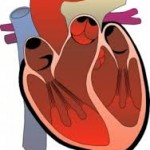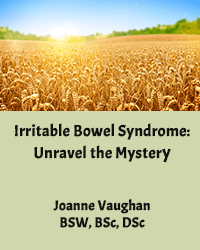When you clicked this page, what did you expect to see, all about cholesterol?
Am I right…? I said Cardiovascular System and you automatically thought about cholesterol levels. In fact cholesterol levels are more of a correlation to liver and thyroid efficiency, yet the pharmaceutical and allopathic medical community would have you believe that the only indicator of good cardiovascular health is your cholesterol levels.
What’s in this article:
• Homocysteine update… very important
• What cardiovascular health entails
• What it does
• Fully and properly assess the health status
• Cardiovascular markers
• Comprehensive list of blood tests
• What’s next
Homocysteine Update
Recent studies were done at McMaster University in Canada and the University of Tromso in Norway. Both studies measured homocysteine levels in a large group of individuals who had elevated homocysteine levels. The outcomes seem to want to suggest homocysteine levels, elevated or not, are not a relevant cardiovascular marker. I most adamantly disagree as do knowledgeable and esteemed Healthcare expert – emphasis on CARE.
The Study does not say how high the homocysteine levels were to begin with. They both used vitamin supplements outlined below to bring down homocysteine levels. Bring the levels down, they did. As in all good studies, they had a control and placebo group. According to the results, the control group, the group taking the vitamins and having their homocysteine levels drop, were no less likely to expire as a result of a heart attack or stroke than the placebo group.
• Here is what facts are missing: Were the homocysteine levels the same in both groups? How many from each group experienced heart attacks and or strokes? What other factors, like diet and exercise were measured for and factored into the results. Who funded the study? Ages of control group and placebo group? Weight? Were all those extraneous factors taken into account?
• If you have read my explanation of cholesterol and how it may contribute to health disease, then you will see the correlation to homocysteine. Cholesterol is a substance in the blood. If you have high levels of fibrinogen or plaque, there might be a greater chance of a substance like cholesterol hooking onto a shelving of plaque and causing a blood flow disruption. Whether that is homocysteine or cholesterol it does not change the end result. I know if my homocysteine levels were elevated, I would correct them. Would I address just that? Likely not. I am going to do the prudent thing and also address dietary and exercise concerns, along with getting a complete profile done which includes all the tests listed here. Then and only then will I be satisfied that I have a sense of my own cardiovascular picture. That way, I can determine the safest way to proceed.
• I suppose the other reason I would lower my homocysteine levels is because of the correlation of homocysteine to other degenerative diseases.
Here is the rest of the picture: Studies abound on the detrimental impact of elevated homocysteine levels. Studies from as far back as the early 1980’s began to measure the correlation of high homocysteine and a myriad of other healthy disorders. Here a couple to help you. For further studies and more information that you need to arm yourself with knowledge, I recommend you visit www.lef.org and www.vrp.com. Type in homocysteine to the search bar
Just to refresh your memory, homocysteine is an amino acid that is normally present in the blood stream. The problem occurs when it builds past acceptable levels. Accepted levels are below 6. Elevated levels negatively impact cholesterol turning it into oxidized low density lipids or LDL, the kind of cholesterol that is implicated in cardiovascular disease by causing damage to artery walls. Elevated levels cause blood to clot more easily. This manifests itself in strokes, myocardial infarction or heart attacks, deep vein thrombosis, etc.
Here is a direct quote from the McMaster study – “Because homocysteine levels are related to kidney problems, smoking, high blood pressure and other factors that increase the risk of heart disease, “homocysteine could be a marker, but not a cause, of vascular disease,” the Lonn team said. If you read the Reuters report, you will read, not statistically significant. And just to point out, no responsible or credible health care professional would make a blanket statement that started from the premise that homocysteine is and of itself the cause of cardiovascular disease or any other condition. That one statement, in my opinion, seriously diminishes the findings of the study which were vague and inconclusive anyway. I am giving you the link to read the results yourself before I go into other studies and links: http://heart.healthcentersonline.com/newsstories/loweringhomocysteinedoesntprotectheart.cfm. I hope that link works. That should work. I have checked it a number of times. If not type in http://heart.healthcentresonline.com and key in homocysteine doesn’t protect heart.
Consider the following two studies:
McGill University conducted a study, infact expanding the scope of how elevated homocysteine levels might impact not just cardiovascular disease but also IBS including Ulcerative Colitis and Crohn’s disease, osteoporosis, depression, Alzheimer’s as well as vascular disease.
The results indicated two very important findings:
#1. Hyperhomocysteinemia may be a warning sign of low B vitamin status inside the cell wall before it actually shows up in the blood work. This is very important because blood tests can not measure what is actually occurring within the cell walls where all intracellular activity occurs.
#2. All conditions, including Ulcerative Colitis, etc. rose in correlation to homocysteine levels. What that means for those who suffer conditions such as Crohn’s and Ulcerative Colitis, symptoms were manifested both in severity and duration. [Am J Gastroenterol. 2001 96(7): pp.2143-9]
Another large study was conducted in Norway involving 4700 men and woman. They were all between 65-67. This study found a statistically significant correlation between elevated homocysteine and an increase in mortality.
Here’s the result:
• a) 50% increase in mortality from cardiovascular disease
• b) 26% increase from cancer
• c) high homocysteine levels were present in over 70% of mortality from all other causes. [Am J Clin Nutr 2001;74: pp.130-6]
What does that say to me: Simple – Prudent to Check ….. Prudent to Correct
Come along with me…
Here is what you need to know and why, in order to fully determine the health status of your Cardiovascular System
What it does:
Your autonomic nervous system inspires the little muscular organ, called your heart, to beat somewhere in the range of 100,000 times a day. Your heart, just for reference sake, is about the size of your hand, clenched.
Your cardiovascular system is responsible for transporting oxygen molecules that were picked up by your lungs and delivered to your heart for circulation to the rest of your over thirty trillion cells.
The blood that is pumped through your heart also delivers nutrient molecules that were first delivered to your liver via the portal vein from the small intestinal tract through the tiny microvilli that you’ve heard me talk about.
Metabolic waste products are carried away from the cells via the cardiovascular system.
Hormones along with other vital substances are transported compliments of the cardiovascular system.
In a nutshell, your blood supply, in the amount of approximately 2000 gallons per day, is the river of rich gifts to your cells and your cardiovascular system ensures goods are delivered in a timely fashion and waste is carried away to keep everything clean and running efficiently. In fact, the river runs deep and long. The network of arteries, capillaries and veins make up over 60,000 miles.
Arteries carry oxygen rich blood to the cells and veins carry oxygen depleted blood to the heart to be enriched. Artery wall are thicker than the walls of veins.
Veins actually have a stop valve which prevents blood from flowing backwards. Fascinating stuff
You need to know how to fully and properly assess the health status:
Thank you to Great Smokies Laboratory in the Great Smoky Mountains for being one of my primary teachers and wonderful guide through this incredibly important and grossly misunderstood area of vital health.
If cholesterol levels were such an accurate and remarkably reliable indicator of a healthy or diseased cardiovascular system then why are the following current stats so prevalent?
In the U.S, approximately 500,000 bypass procedures will occur this 2007 year. That does not include balloon angioplasty procedures, transplants or cardiac catheterization. Bypass surgery alone is a multi-billion dollar industry. According to financial stats obtained by Great Smokies Lab, the price tag for combined cardiovascular procedures was in the neighbourhood of 259, 1 billion per year and climbing. Did those individuals not have their cholesterol checked?
In fact cholesterol levels is only one player in the health status of your heart.
If you follow the research done by Great Smokies Lab or the Weston A. Price organization, to name just a couple, you will see that high or low cholesterol is only one indicator of your chances of having a cardiac “accident”. To only rely on one test to measure such a complex and intricate system is remarkably simplistic. Wouldn’t you agree? www.gsdl.com and www.westonaprice.org along with the research of such great Physicians as the Swedish Dr. Ravnoskov MD PhD on The Cholesterol Myth, are links that will lead to new knowledge. New knowledge will give you insight into managing your health.
Cardiovascular Markers
What you are going to learn here is about Cardio Markers that will decidedly give you the best possibility of early detention that can offer you up options and awareness to change the path and progression of this disease.
Consider the following factors when you are looking at the bigger picture of cardiovascular health
• Family history and the pattern of cardiovascular ‘accidents’. That includes heart related and strokes
• High Blood Pressure or Hypertension
• Obesity
• Thyroid Deficiency
• Autoimmune disease
• Diabetes
• The presence of transfats, hydrogenated fats, fried foods, regular use of margarines, vegetable oils such as corn oil.
• When you visit my link to Fats and Oils you will get a more comprehensive understanding of healthy and unhealthy fats/oils
• Recreational, otherwise known as illegal, drugs
• Excessive alcohol consumption
• Renal or Kidney disease
• Hormonal imbalance
• Lack of exercise or sedentary lifestyle
• Generally poor nutrition intake.
• High unhealthy fats, processed foods, sugars, you know of what I speak
Those are some of the major health risks and factors when considering the cardiovascular system.
To follow is a comprehensive list of blood tests that make up the rest of the picture:
Let’s start with Blood lipids:
Blood Lipids include some common tests that you are likely already familiar with:
Total Cholesterol
Cholesterol is a sterol and an abundant steroid in the tissue. It is a precursor to hormones such as testosterone, estrogen, cortisol and DHEA. It is a vital to cell membrane integrity as well it acts as a vital protector against free radical damage and certain cancers. Cholesterol is mainly synthesized in the liver and intestinal tract, about 70-80%, the balance of the source is dietary. Normal levels are considered to be between 175 mg/dl and 250mg/dl.
LDL
LDL is low density lipoproteins. It is called low density because as this lipidprotein transports cholesterol to the cell so it considered already filled with cargo. 70% of LDL is removed every day. Elevated levels are considered a major factor in heart disease.
HDL
HDL is high density lipoproteins. High density is interpreted as a good marker for cardiovascular heath. The role of HDL in the protection against heart disease is linked to the ability of HDL to scavenge and store excess cholesterol and LDL from plasma. The LDL/HDL ratio is a well established and research cardiovascular marker.
Homocysteine
• Homocysteine is an amino acid. High levels of homocysteine indicates damage to the protective cellular layers of the arterial wall known as endothelial cells. Endothelial cells are permeable and allow certain substances to pass through the plasma to the under layer of the three layers of the arterial wall. Homocysteine acts as an abrasive molecule that can damage the endothelial cells and cause atherosclerotic lesions. According to some MD’s, including the work of the Weston A. Price Association, homosteine is a stronger cardiovascular predictor than lipids and cholesterol to potential heart disease. Elevated homocysteine levels is also associated with multiple sclerosis, alzheimer’s, rheumatoid arthritis, and osteoporosis, to name just a few conditions potentially affected.
A healthy range has been difficult to determine, however, anyone with a reading over 6 should take measures to put the proper nutraceuticals in place to lower or break down homocysteine.
Ways to breakdown or avoid the consumption of homocysteine byproducts are as follows:
Nutraceuticals profile use in dissipating Homocysteine:
• Trimethylglycine or TMJ
• B6
• B12
• Folic Acid are nutraceuticals that I have personal used with my clients. I have personally seen reductions from 11 to 6 within a four month treatment protocol.
Dietary Precautions:
• Avoid red meat during the treatment. In all cases avoid the burnt portion of meat which is a major source of dietary homocysteine. Meat includes poultry.
Triglycerides
Triglycerides are fatty acids resulting from excessive circulating glucose. Diets high in process foods and high carbohydrate diets are significantly correlated with high serum triglycerides.
Lipoprotein(a)
Otherwise known as Lp(a), lipoprotiens are very similiar in their structure to LDL. The function of Lp(a) is not well known. Here is what we do know:
• Lp(a) acts as a transport for mainly triglycerides and cholesterol through the blood stream
• There appears to be a strong hereditary factor with Lp(a), possibly making it a reliable marker for familial cardiovascular disease, but definitely making it a necessary marker in testing for CVD. In fact, up to 40% of individuals who have had MI or myocardial infarction, have no apparent traditional causative factors. Factors such as hypertension, smoking, elevated cholesterol, high LDL, low HDL; all of those indicators were unremarkable. According to studies by Doetch, Roheim and Thompson, Lp(a) is a far more predictive and reliable marker than any of the commonly used tests. Lp(a) is not affected by the usual stresses of diet, smoking, etc.so it can go undetected when those other factors are not present in an individual’s life style
• How Lp(a) contributes to atherosclerosis is as follows: because it transports lipids through the blood and because it is considered to have high molecular weight, it has the potential to add mass. It also prevents the break up of clots. It adds fibrin, which we know promotes atheroplaque and blood clotting. Lp(a) also seems to be a good marker for carotid atherosclerosis, a significant indicator in cerebral infarction.
• Please request this lipid test. If you are Canadian, you may have to pay out of pocket… so what! If you have any CVD in your family, this test is a must
• Estradial along with nicotinic acid have been shown to lower concentrations of Lp(a)
• Niacin has also been shown to reduce levels of Lp(a) in individuals with hyperlipidaemia
• Combined therapies using estradial and progesterone have also shown promise in reducing Lp(a)
Fibrinogen
Fibrinogen is a blood protein that the body depends on for proper clotting. It is synthesized in the liver. Again, the liver plays a key role in keeping cardiovascular factors at acceptable levels. If fibrinogen levels become too high, from stress, obesity, inflammation, aging, or other causes, this substance can play a key role in artery disease by restricting blood flow, accelerating plaque deposits, and promoting damage to arteries.
Fibrinogen is affected by life style and can be increased by obesity, smoking etc.
C-Reactive Protein
C-Reactive Protein is a marker for inflammation in the body. It is often used as a marker for RA, rheumatoid arthritis. Inflammation can cause damage to vascular endothelium or the vascular walls. Inflammation are cytokines that can encourage blood coagulation.
The New England Journal of Medicine published a study that drew a high correlation of both cerebral and myocardial infarction. The study also indicated a higher incidence where there was the presence of infectious microbes, for example H. pylori bacteria.
Oxidative Stress Analysis
Oxidation of lipids in the bloodstream is a crucial mechanism for setting off the damaging process of atherosclerosis.
What is next?
Diet and Nutrition
• Nutraceuticals like the ubiquitous Coenzyme Q10
• Positive lifestyle changes
When I say ‘positive lifestyle changes’, I am not talking about trying to stay away from challenges in your life, I am talking about strengthening your body with good Nutrition, move and exercise and finally using the relaxation tips:
- let your lower jaw drop
- let your shoulders drop
- let you arms drop
- let your hands drop
Simple
And that is what allows you to breathe deeper starting by taking deeper breaths using your diaphragm
• Working with a healthcare professional if you think it will help or spin me a line or a question, happy to assist you
Okay, back to your CV tests, once the result of the tests have been accumulated and evaluated, there are some simple, wonderful ways to improve your cardiovascular health.
Let’s look at some of them:
Homocysteine:
As I mentioned earlier, time and again I have worked with individuals with high homocysteine levels. Use a combination of TMG, Folic Acid, B12, B6. Consistently the serum marker decreases significantly. In fact, believe it or not, in spite of the remarkable evidence, I have encountered numerous allopathic physicians that tell their patients that high homocysteine; by high I am talking values exceeding 11, that there is no risk indicator. In that case, I ask my clients to do their own due diligence and research the evidence. It is very important where my knowledge and allopathic medicine do not match, the client make their own determination and their own decision. Time and again, they opt for treatment. Time and again, I support their decision.
Once test results have been carefully evaluated, numerous therapeutic interventions can be implemented to significantly improve cardiovascular health.
The impact of Lifestyle factors is something that is common knowledge. Common knowledge is often underestimated in its impact. It is a mistake to underestimate common knowledge in caring for your body.
The Information in this Web Site, in its entirety, is intended for educational purposes only
You are welcome to make an appointment directly. You do not require a physician’s referral
If you require a diagnosis, please attend to your Health in a timely manner and make an appointment with your allopathic Physician.
For guidance in Nutrition and Natural Therapies contact
drjvaughan@live.ca





